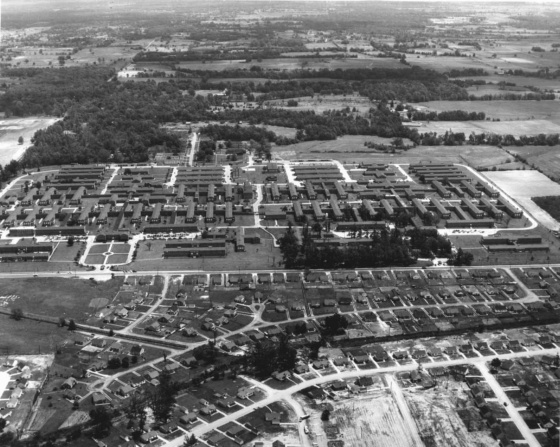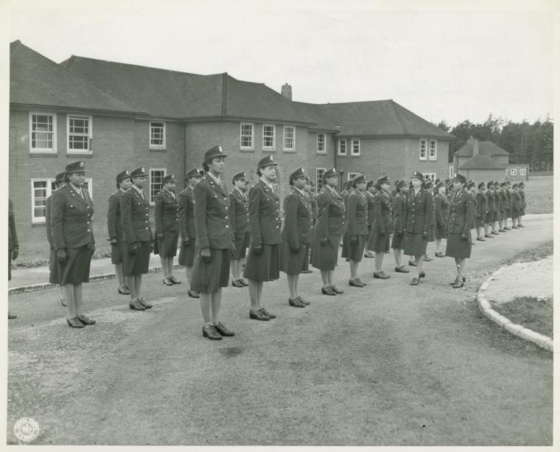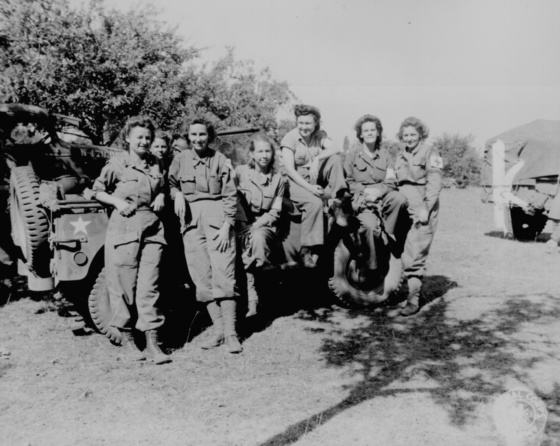World War II Memories From An Army Nurse
My dad H.W. Davis, recently wrote a 3-part series of guest posts about my grandfather and his experience serving with the First Marines in the South Pacific during World War II. He received such a positive response from those posts that he decided to share one more World War II guest post, this one being about his mother, my grandmother. Grandma is a 93-year-old World War II veteran, and this post details some of her experience as an Army Nurse during World War II. If you want to read more of my dad’s talented writing, download his 1st published book. Seeking Diana by H.W. Davis is available for Kindle by clicking here. Hope you enjoy these old war stories! -Stephen

READ MY 3 PREVIOUS POSTS ABOUT MY DAD’S EXPERIENCE SERVING WITH THE 1st MARINES IN THE SOUTH PACIFIC DURING WORLD WAR II.
- World War II Memories From The South Pacific: Part I
- World War II Memories From The South Pacific: Part II – Borneo and New Guinea
- World War II Memories From The South Pacific: Part III – Okinawa
An Addendum: Mom’s Experiences and Perspective
My mother, Reva Hodges Davis is also a veteran. She was born in Rocky Mount, Virginia, in the Blue Ridge Mountains to a solidly middle class family. Her father, Vernon Hodges, ran flour mills around the country for what would become known as Martha White Flour. One grandfather was a large tobacco farmer and store owner. Another was a long-time county sheriff and U.S. Marshall. I point out this background because Mom’s Great Depression experiences were much different than those of my father.
By high school, Reva was in Jackson, Tennessee where she tied for Valedictorian at Jackson High School. She took a scholarship at local Union University before later transferring to Vanderbilt University in Nashville. Mom went to Vandy because the U.S. Government paid for it! The military machine desperately needed all of the nurses it could get. Mom graduated from Vanderbilt, but because of health issues the U.S. Army opted not to send her overseas. Instead she tended to returning vets. Still, she said that she really was proud of her U.S. Army officer’s uniform!
Mom was working in Nashville on V-Day. Although now 93, she still remembers the excitement. As word began to spread throughout the hospital, she and several fellow nurses headed to downtown Nashville as soon as their shift ended. Lacking cars, they walked over a mile along crowded sidewalks. While not as large or spectacular as Times Square, the enthusiasm was just as great. Strangers were hugging and laughing. She said there was joy and electricity in the air. Most of the people celebrating had friends and relatives who had served.
AFTER THE WAR
A few months later, Mom made the move to Memphis to work at the rapidly expanding Kennedy Veteran’s Hospital. Located on what later would become the South Campus of the University of Memphis, Kennedy was actually a collection of one story buildings. At one point, Kennedy was the largest veteran’s hospital in the United States. For a while she served in the building that housed World War I veterans. She found this ward sad because these men were mostly in their 40’s and early 50’s. Many had nowhere else to go or family to tend to them.

Aerial view of Kennedy Veterans Hospital in the late 1940s.
For a while she worked in the tuberculosis ward. It contained a great many veterans in the 1940’s. It now seems strange for most Americans to comprehend how prevalent tuberculosis used to be in our country.
Mom then worked in the more general wards with World War II vets. In 1946-47 they were packed with men whose bodies were mangled. Some were just teenagers. There were shattered limbs, amputees and some paraplegics. Because Kennedy was a large regional facility, most of the patients were not from the Memphis area. It was difficult for family members to visit them. The nurses played a special role of ministering to these men emotionally as well as physically. By 1947, most of the patients had transitioned to normal civilian society. Those left were the truly depressing cases. Their sad and lonely circumstances contributed to the high turnover rate of medical personnel. Eventually, Mom moved in the opposite direction to pediatric nursing.

African American Army Nurses train at a medical facility in England during World War II. The United States Army sent nurses all over the country and all over the world during WWII.

In conclusion, Mom was just one of millions of American women who patriotically contributed to the war effort. They endured over four years of rationing. Living in an era when the men were expected to support their families, the women stepped forward. They took care of families alone. Whether they were nurses, teachers or defense plant workers, millions of them took on roles that forever would change American society and attitudes. I truly believe that the Women of World War II set the stage for the social and economic advances of American women in the subsequent generations. They, too, were a vital part of the Greatest Generation. Those of us who followed these men and women should pay homage to them.
To learn more about the life and importance of Army Nurses during World War II, watch this documentary.

